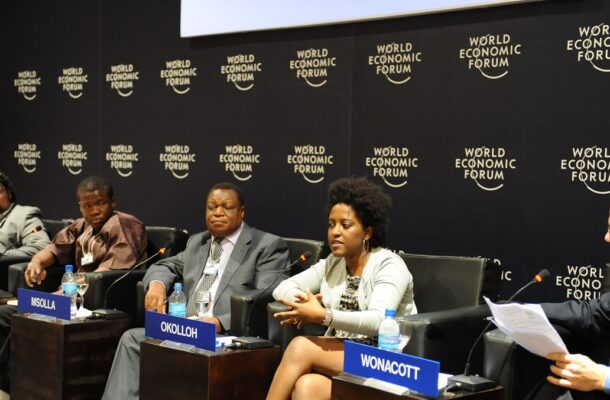The big lies pitting West v South

Recently, numerous authors have raised the theme that the so-called “Global South” is tired of the West’s disrespect and that only through repairing and fulfilling past promises and being more sincere can the so-called West and the “Global South” have mutually beneficial relationships. This argument is flawed at several levels.
First, the “Global South” is an entirely constructed political concept. There is no global South, there is a heterogeneous set of countries in the developing world that include democracies, dictatorships, flawed democracies, socialist states, as well as others. Some of these states are in full agreement with the criticism that the West does not show respect, while others look to the West as a direction for their own development.
An example of this is found in the Afro-barometer. African states were surveyed as to how they view both the United States and China. While many African States view China favourably and appreciate the aid that has been delivered over the decades through development programs and most recently the Belt Road Initiative (BRI), many still see the United States and the West and the kinds of institutions that they have built as a direction that they wish to pursue.
This does not mean to emulate them, but rather to localise and adapt to local conditions as they see the stability that strong institutions and rule-of-law has brought to the West. They see the broad prosperity that the same institutions have brought while recognising the benefits of the relationship with China.
Second, critics of the so-called West continue to make the argument that the West is constantly finding fault with other countries. Constructive criticism does not necessarily mean that they disrespect countries in the developing world. Corruption, gross violations of human rights, gender, ethnicity and sexuality-based discrimination are all indicators that broad-based development is not inclusive as it does not mobilise all human capital in societies for the benefit of the society in question.
To be sure, the aforementioned characteristics are not prerequisites for development as South Korea and Taiwan have shown. Both initially began their development trajectory in non-democratic environments with little respect for human rights. Today, both Taiwan and South Korea are developed societies that are a distinct blend of the West and the East, enjoying broad levels of development, human rights, and democratic governance.
China has also demonstrated that good governance can deliver development as it has shown during its first period of reform and opening in which 600 million Chinese were moved out of abject poverty.
Rather than criticism of developing countries, the West is providing a roadmap for many countries to improve their prosperity, peace, and stability.
Third, there are further arguments that the “Global South” is unified. Frankly, the term “global south” is a politicised term that is being advocated by China to reset global order in a way that prioritises national sovereignty and non-interference while at the same time attempting to dilute concepts of rule-of-law, democracy, and human rights.
If China was truly an advocate of the “Global South,” we would see India in the United Nations Security Council (UNSC), we would see China advocate for the inclusion of other large states like Nigeria and perhaps South Africa as key members as well. We would see Beijing champion Security Council reform. It is not happening as this would dilute Beijing’s power to shape the UNSC in a form that suits its national interests.
While the West has not always delivered on its promises to the developing world, it has provided direction, aid, help with good governance, and it has deployed important NGOs such as Doctors Without Borders, the Red Cross and Crescent, and others. These are deployed in unstable zones of the developing world to try and bring stability and deal with the egregious human rights challenges, developmental challenges, and climate challenges that exist.
It is easy to blame the West for the developmental challenges that exist in the developing world. In reality, many of the challenges that the developing world faces are directly related to deeply embedded corruption, the lack of rule-of-law, disrespect for human rights, and embedded stakeholders that continue to prioritise getting wealthy over the broad distribution of wealth and development in their societies.
Indeed, the West needs to do more to help the developing world prosper. This includes helping develop institutions that will bring prosperity and stability and decrease corruption. In the age of Artificial Intelligence and transnational diseases like COVID-19, the West will also need to contribute to bridging the technological, health, and other divides that are widening as technology continues to increase, particularly with respect to the gap between the rich and the poor.
We should be clear that criticisms of the West, by using the umbrella term of the “Global South,” are politicised attacks that are meant to foster division between the developing world and the developed world based on a sense of disenfranchisement with globalisation, and with ideas of democracy, human rights, rule of law, and transparency.
False narratives pit a fabricated “Global South” against the West and does not help developing countries achieve their development goals. The West should do more to listen to the needs of the developing world, such as attention to climate change, avoiding hypocrisy in their diplomacy, and being sustained in their engagement.
At the same time, the West should not eschew the lessons that broad-based development strategies have shown – that low corruption, good governance, and respect for diversity are solid building blocks to contribute to sustainable, broad-based development.
This article was published by the Australian Institute for International Affairs.
Stephen Nagy is a senior associate professor at the International Christian University in Tokyo, a senior fellow with the MacDonald Laurier Institute, a fellow at the Canadian Global Affairs Institute, and a visiting fellow with the Japan Institute for International Affairs.












